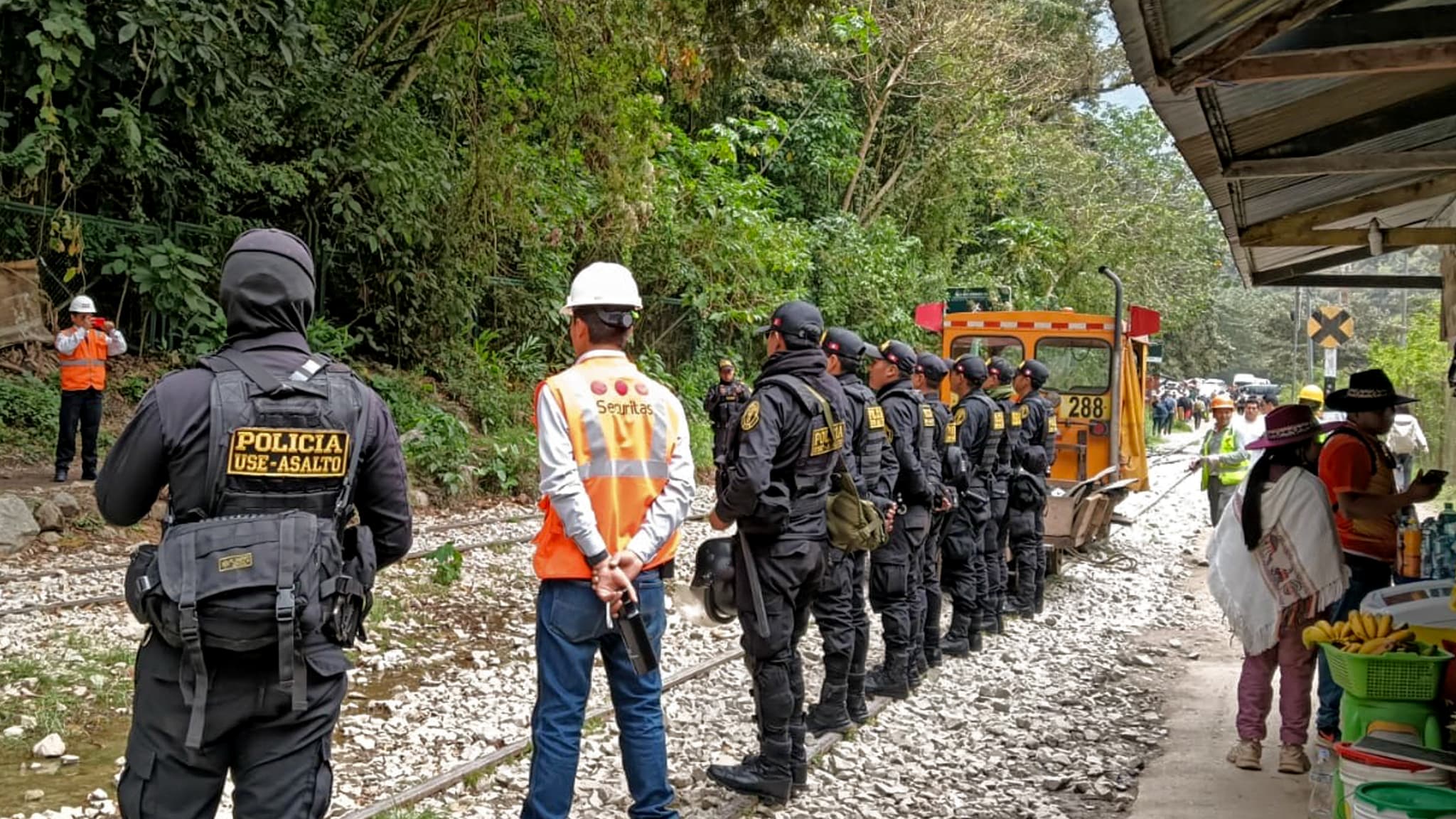Train traffic resumed this Wednesday, September 17, Machu Picchu, the famous Inca Citadel to Peru, after the temporary lifting of the blockade made by residents, resulted in the management of local transport, announced the railway company and the protesters.
Access to the site classified as World World Heritage was interrupted since Monday due to the blockade of the tracks by the protesters who demand the departure of the bus company that provides the trip to the citadel, its contract expired after 30 years of concession. They believe that it must be replaced by a company belonging to one of its communities.
At least 2,300 evacuated tourists
To access the site, visitors generally take a train from Cusco, the former capital of the INCI empire located 110 km, to Aguas Calientes. From there, they take a bus to Machu Picchu.
At least 2,300 tourists, including many foreigners, were evacuated from the area or left it by their own means between Tuesday and Wednesday, due to the interruption. The clashes with the protesters were injured among the police, police said.
The Perurail company, which operates the rail service, announced in a press release the “resumption of its operations.”
A truce to start the dialogue
Previously, the inhabitants reported a truce until Saturday, “so that a dialogue process can take place within the framework of respect and social peace, taking into account the mediation carried out by the defender of the people,” according to a press release from the Wrestling Committee of the different communities of the Machu Picchu district.
Among evacuated foreign tourists are French, Japanese, Americans, Brazilians, Germans and Portuguese.
List as a world heritage site since 1983, the Machu Picchu welcomes an average of 4,500 visitors per day, including a large number of foreigners, according to official figures.
The citadel, located at 2,438 meters above sea level, was built in the fifteenth century by the orders of Emperor Inca Pachacutec (1438-1470). It was discovered in 1911 by the American explorer Hiram Bingham.
Source: BFM TV


